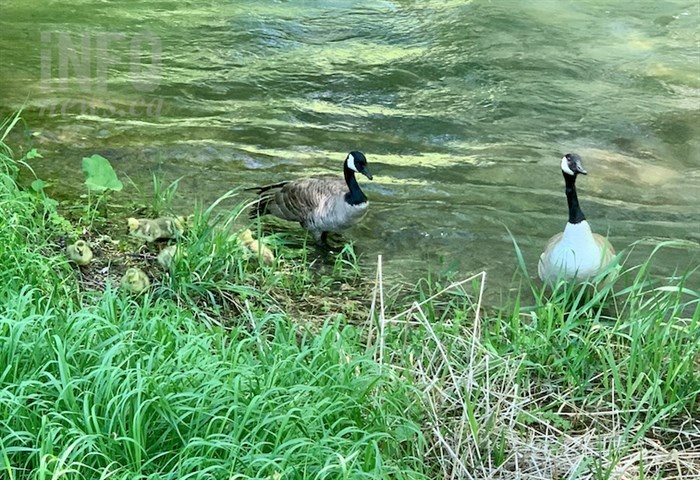
FILE PHOTO
(HOWARD ALEXANDER / iNFOnews.ca)
January 16, 2024 - 1:39 PM
The BC Wildlife Federation warns that a proposed gravel mine near Summerland will undo millions of dollars of investment and years of conservation work in the Garnet Valley and urges people to rally against the proposal before the formal objection’s deadline today.
In a press release issued today, Jan. 16, the federation said that it is “absolutely opposed” to the project which aims to establish a mine site west of Okanagan Lake, among an important network of streams and riparian areas.
The proposal has faced significant opposition since its application was put forward in December 2023.
READ MORE: 'The land will be lost forever:' Okanagan is one the most endangered ecosystems in Canada
Eneas Creek is close to the proposed site and will be put at serious risk. The creek was part of a critical conservation effort by the Okanagan Similkameen Stewardship and for more than seven years has successfully remained a revitalized wildlife habitat.
The creek also supplies water to local vegetable and berry farms, orchards and cattle ranches, as well as the Summerland trout hatchery which relies on an aquifer fed by this tributary.
“Vast sections of this valley have been acknowledged as having very high environmental sensitivity and are one of only a handful of places in Canada where you can find these grassland ecosystems,” Blair Parker, vice president of the Summerland Sportsman's Association, said in the release.
READ MORE: The Okanagan’s forgotten grasslands
Grasslands are an endangered and critical component of the Okanagan’s complex ecosystem, the federation said, adding the new proposal threatens these landscapes and vital winter and spring feeding locations birthing zones for the Okanagan’s declining mule deer population.
The valley is also home to big horn sheep, a vulnerable species that is highly sensitive to human activity.
READ MORE: Bighorn sheep might become 'little-horn sheep' soon
“The valley is a highly diverse landscape with open forest, sensitive wetlands and unique south-facing grasslands,” Jesse Zeman, executive director of the wildlife federation, said in the release. “The valley is inside the study area of the Southern Interior Mule Deer Project, an independent research effort funded by the B.C. Wildlife Federation.”
The proposed site is also a key area for farms, wineries and other agritourism businesses, prompting the Garnet Valley Agritourism Association to express its increasing concerns about the project.
The federation urges the public to object to the project today before the deadline closes.
Objections can be made by email to the Chief Permitting Officer of Mines, Ministry of Energy, Mines & Low Carbon Innovation.
To find out more about the BC Wildlife Federation follow the link here.
To contact a reporter for this story, email Georgina Whitehouse or call 250-864-7494 or email the editor. You can also submit photos, videos or news tips to the newsroom and be entered to win a monthly prize draw.
We welcome your comments and opinions on our stories but play nice. We won't censor or delete comments unless they contain off-topic statements or links, unnecessary vulgarity, false facts, spam or obviously fake profiles. If you have any concerns about what you see in comments, email the editor in the link above. SUBSCRIBE to our awesome newsletter here.
News from © iNFOnews, 2024